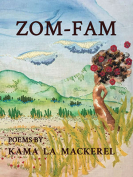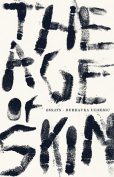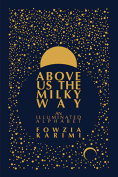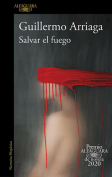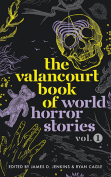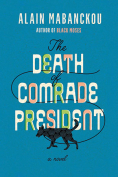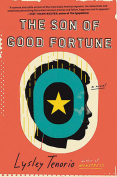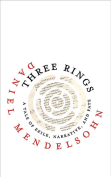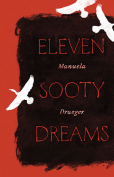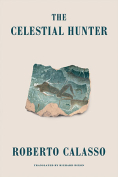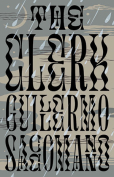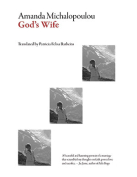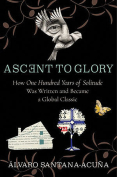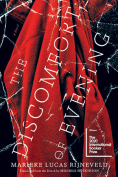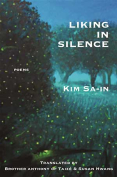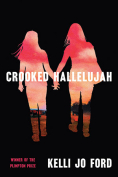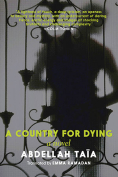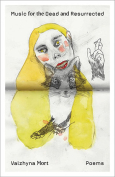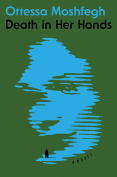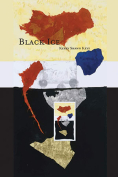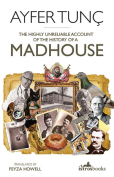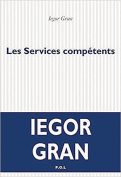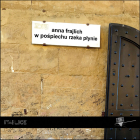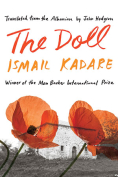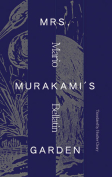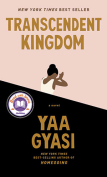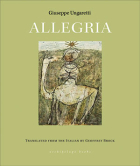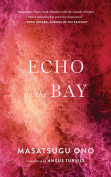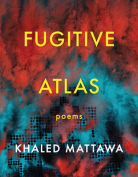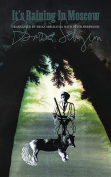The Highly Unreliable Account of the History of a Madhouse by Ayfer Tunç
 London. Istros Books. 2020. 372 pages.
London. Istros Books. 2020. 372 pages.
IMAGINE A LARGE building facing the rough waters of the Black Sea: a mental health hospital. Now imagine that same large building not quite facing the rough waters of the Black Sea, because there are no windows on the side that overlooks the actual sea. Such absurdity, which is very much reminiscent of the mentality humorously related to that particular region in Turkey, is key to the narrative of The Highly Unreliable Account of the History of a Madhouse.
With its back turned to the Black Sea, “evok[ing] an immediate and inexplicable sense of resentment,” this mental hospital in northern Turkey is the starting point of “the highly unreliable,” quite enjoyable, and rhythmically fast-paced account of the country. As the threads of the narrative weave in and out and stitch the stories of its many characters together, the omniscient narrator’s gaze travels through various cities and towns and moves back and forth in time. Yet it always comes back to the madhouse only to set out again on another narrative tangent. The Highly Unreliable Account of the History of a Madhouse represents the “human landscapes” of Ayfer Tunç’s Turkey, not quite the romantic epic that Nâzım Hikmet’s magnum opus is, but in style and tone, very much fitting her milieu and zeitgeist the way Hikmet’s did his own era.
The novel opens on Valentine’s Day with the introduction of the first character, Ülkü Birinci, “an associate professor of psychology at an undistinguished private Istanbul university,” about to give a lecture entitled “Love: Self-sacrifice or Self-preservation?” at the hospital’s conference hall. While this opening is suggestive of a campus-novel storyline, it soon becomes clear that the narrative not only crosses time and space but also switches styles along the way. Stories interconnect with stories, pacing the worlds of small-town shopkeepers and civil servants, lending an ear to loves lost and found, often edging into madness and, not seldom, directly embroiled in it. With nervous breakdowns, obsessive-compulsive disorders, depression, and the like equally prevalent among the characters (including the doctors), the narrative’s witty bedlam is further highlighted by the contrasting dry nonchalance of the narrator’s tone. The madhouse of the novel opens up toward the madhouse that is Turkey.
With its carnivalesque and multivocal style, this second novel of Ayfer Tunç (b. 1964) is a unique one among her oeuvre as well. Tunç is particularly skilled in her depictions of provincial towns and their peoples, their introverted cultures and personalities, and their consequent sense of claustrophobia and monotony. However, unlike her more sombre works, such as Dünya Ağrısı (2014, Weltschmerz), the novelist employs an amusing tone of satire and absurdity for social criticism in Madhouse. As the petty affairs of the individual characters are juxtaposed casually with key events in the country (e.g., the Wealth Tax of 1942), the disproportionate tones of “tragedies” are exposed, maintaining an excellently sharp perspective.
The translation is dynamic and a pleasure to read, and the diligence of Feyza Howell is admirable. Choosing to translate such a lengthy and challenging novel is already courageous in itself, and Howell does a quality job in balancing the relationship between the source and the target languages. Her translation moves easily through the cultural specificities of Turkish and their parallels in English (including the accents) while losing neither the local essence nor the target feel.
Ayfer Tunç’s first novel in English translation is a highly readable literary account of Turkey’s history and culture without the often-expected exoticism in literatures in translation. Ayfer Tunç is indeed a welcome and significant contribution to the world literary sphere as a fresh voice.
Burcu Alkan
London
